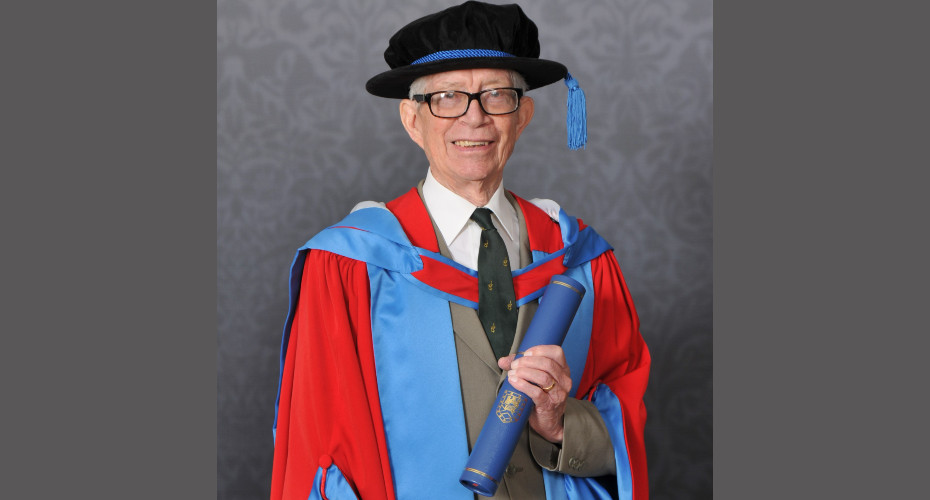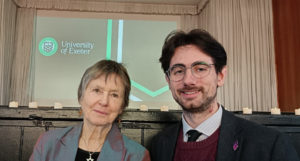In memory of Leslie McLouglin

Leslie McLoughlin
Leslie McLoughlin, who died 10th June 2025, was a remarkable Arabist with a remarkable story. An Honorary Fellow at the Institute of Arab and Islamic Studies, University of Exeter- and an Honorary Graduate (DLitt, 2023) – he and his wife, Christine, were a regular presence in the Institute and central contributors to the Institute’s life. Leslie sponsored exhibitions, donated books and research materials, gave lectures and even helped out on occasions with undergraduate Arabic teaching. Warm, funny and engaging, Leslie had many stories to tell – all of them were fascinating – of his life in the Arab world. His deep knowledge of Arabic culture and history, his friendships and encounters with many of the major figures of 20th century history of the Middle East, and his impressive language skills all made him a mine of information for staff and students alike.
Leslie’s Arabic journey begun in 1960 during his time in Royal Army Educational Corps when he started an Arabic course at Durham University. A natural Arabist, his skills developed speedily and soon he was teaching Arabic to fellow military personnel. In 1965, he was appointed as the Arabic Instructor at MECAS – the Middle East Centre for Arab Studies. MECAS was located in Shemlan, 25 kilometres from the Lebanese capital Beirut, and existed to train British military and diplomatic personnel. He taught at MECAS, off and on, until 1975 – whilst also completing courses in Linguistics and Arabic and Leeds and SOAS, University of London. With his high level Arabic skills, he could work in the private or educational sectors when he left MECAS in 1975 – this he did for the next few decades. He worked in university publishing and wrote books himself (one a history of MECAS, another on British Arabists and a biography of the Saudi King Abd al-Aziz). He acted as interpreter to many British dignitaries visiting the Middle East, and dignitaries from the Arab world visiting the UK. He interpreted for the Queen a number of times, and then Prime Ministers and Secretaries of State for Defence. He gathered quite a following in the Arab world, giving interviews on Arab television in Arabic: his well-informed and entertaining answers proved very popular with both broadcasters and general public.
In 2003, he began to wind down these external activities, but remained deeply involved in the promotion of Arabic teaching and learning. This included his work in the Institute in Exeter. We will miss his expertise, his good humour, his deep learning and his unbounded enthusiasm for the Arabic language. We send our deep and heartfelt condolences to Christine and all the family.



